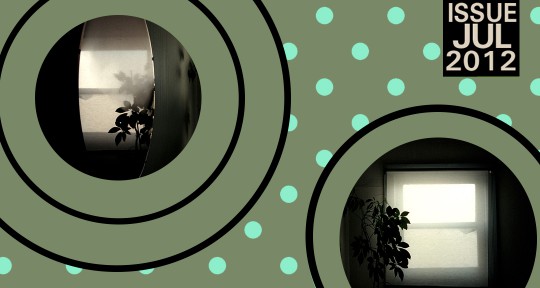“World literature” often gets a lot of attention in the months leading up to each year’s Nobel Prize announcement, but what do we really mean by it? Is it simply all the literatures of the world? Is it a status that applies to texts that circulate in a certain way? As the editor-in-chief of an international journal, I see “world literature” as a shifting aggregate of the literatures that have been translated into any given language. It’s clear to me, writing from Taipei, that an English “world literature” is vastly different from a Chinese one. Upon his passing in June 2012, for example, I discovered that Ray Bradbury had never been translated into Chinese — an omission made more perverse by the fact that translations make up an impressive 50% of all books published in Taiwan, compared to the woeful 3% in the United States. And if Taiwanese readers had been denied the genius of so well-loved an author, one can only imagine what American readers are missing out on.
This asymmetry was what motivated me in May 2012 to initiate a translation project that would introduce to Anglophone readers the newest crop of Chinese writers—a “20 Under 40,” if you will, of the Chinese-speaking world. Such a feature, modeled after Granta’s “Best British Novelists,” consisting of 20 medium-length essays introducing 20 of the most promising authors not only from China — but also from Hong Kong, Taiwan and Malaysia — had just been published that month by the leading Taiwanese journal Unitas and I thought Asymptote would be uniquely positioned to showcase it in English. Leveraging a connection, I made a few enquiries; the response from Unitas was positive. Tapping volunteer translators from the And Other Stories Chinese Reading Group and, crucially, proceeding with Unitas’ assurance that we would have free rein in editing the texts, my team and I decided to commit to turning the translation project around in five months: the first ten essays would appear in our Summer 2012 issue, followed by the other ten in the Fall 2012 issue.
Alas, this project almost derailed. Shortly after publishing a translation of one of these essays in the Summer 2012 issue, I received a complaint, written in English by one of the contributors whom I shall call X. (not one of the “20 under 40s” being introduced, but rather the author of one of the introductory essays). For reasons that will become immediately clear, I excerpt it here verbatim:
after reviewing the whole article, I was not pleasant at all. There are serious problems in my article. As you know, I am not an English speaker, so I don’t really have a high standard for requesting English quality. But I am sorry to let you know that the quality of the translation of my article is completely awful! It’s totally unacceptable! I don’t want to talking about the phrasing and wording. The translator even skipped a lot of phrases of the original article and created something I didn’t write. OK, I don’t want to complain more about that. The editor of 聯合文學 [Unitas] told me you are anglophone, so you should know what I am talking about if you read it all over again. And at the mean time, I have done another English version, if you want, I can offer that. If you have another better version, I am glad to help you to edit it as well.
Since I cannot identify the translation that had so offended X. without also giving him away (I have no interest in singling him out), let me simply vouch for the text: it was the essay that required the least editorial intervention from me by far. It was certainly a faithful text, and any impression to the contrary must reflect X.’s lack of mastery of the English language.
Faced with this situation, I replied that I would check with the aforementioned Unitas editor, and one of us would get back to him about his complaint.
What happened next was something I could not have anticipated. The editor sided with X.—a friend of his, it turned out. Pointing out that X. was currently enrolled in a Ph.D. program in an English-speaking country (never mind that it was a science program), the editor urged me to respect X.’s wishes. Since I had no interest in replacing a perfectly serviceable translation (one that had been undertaken for free, to boot) with a bad one, I made the counter-offer to take down the translation altogether. This was the extent of what I was prepared to do, I made it clear. The subject of this introductory essay, i.e. one of the “20 under 40” authors, ended up getting roped into this discussion; in the end, it was decided that however bad the translation (in X.’s estimation), at least some sort of introduction to the English-speaking world was still better than none. It was agreed that we would still proceed with the second part of the translation project (which, like the first, they did not lift a finger to make happen). But after we each completed our end of the bargain (theirs consisted of running a full-page ad for Asymptote in their August 2012 issue, and publishing my contributing editor’s Chinese translation of Dominique Eddé’s Kite in their September 2012 issue), the partnership with Unitas that we announced just a week ago in the July 2012 Editor’s Note would be dissolved.
It was not the first time in Taipei that my English editing ability would be called into question because of the color of my skin, nor would it be the last. But linguistic racism is in fact the least interesting aspect of this incident. As a result of this exchange, I began to think of my role as a defender of the English language, a gatekeeper of what might be publishable in the English language itself at the cost of any partnership.
I also began to reassess my ambitions for the magazine. According to Can Xue, “Asymptote is well on its way to becoming the premier meeting ground for English and Chinese litterateurs”; perhaps I should be satisfied that we had even set off.
In addition to the ten introductions to Sinophone authors, the July 2012 issue also carried translations into the Chinese of Dominique Eddé’s Kite and of Abdellah Taïa’s groundbreaking public letter Homosexuality Explained to My Mother, both of which required considerable effort to commission and edit. Revisiting the emails from the week following the release of that issue, I count many messages written in Chinese among the approximately 500 or so Asymptote-related threads that were generated during this time. In these personalized emails where I break the news of our latest issue, I go to extra lengths to point out these Chinese translations and encourage my Taiwanese contacts to spread the word of Asymptote. Although I stopped this practice shortly after July 2012 (in part because of what happened with Unitas), I remember being moved by the following message from Gong Wanhui—a “20 under 40” author—in response to news that the issue had just gone live:
“I really love the magazine; from content to design, it’s excellent. But, most of all, it allows me to encounter authors who wouldn’t normally appear in a Chinese literary journal.” (translation mine)

Lee Yew Leong is the Editor-in-Chief of Asymptote.
*****
Read more from our #30issues30days showcase:



